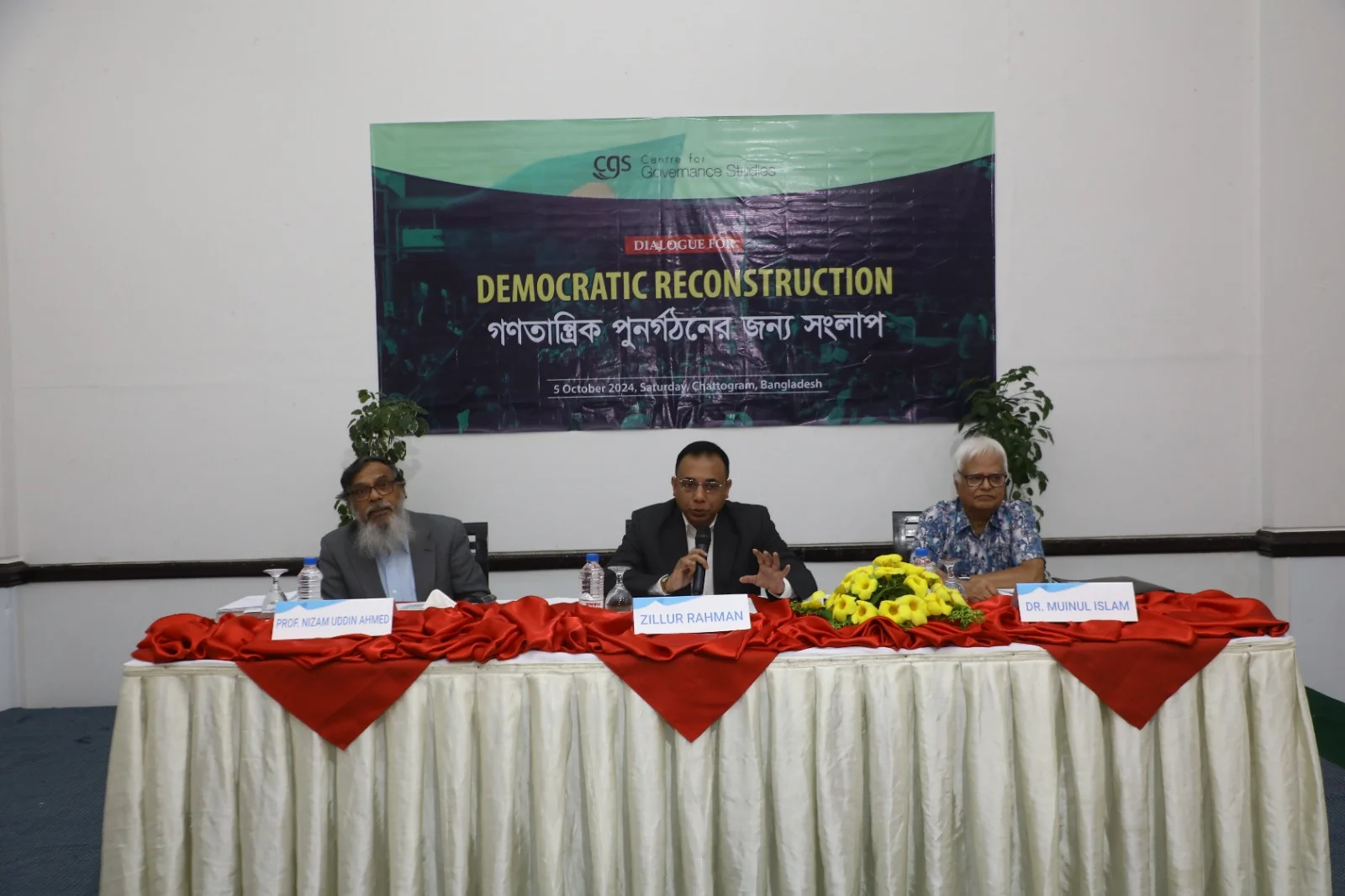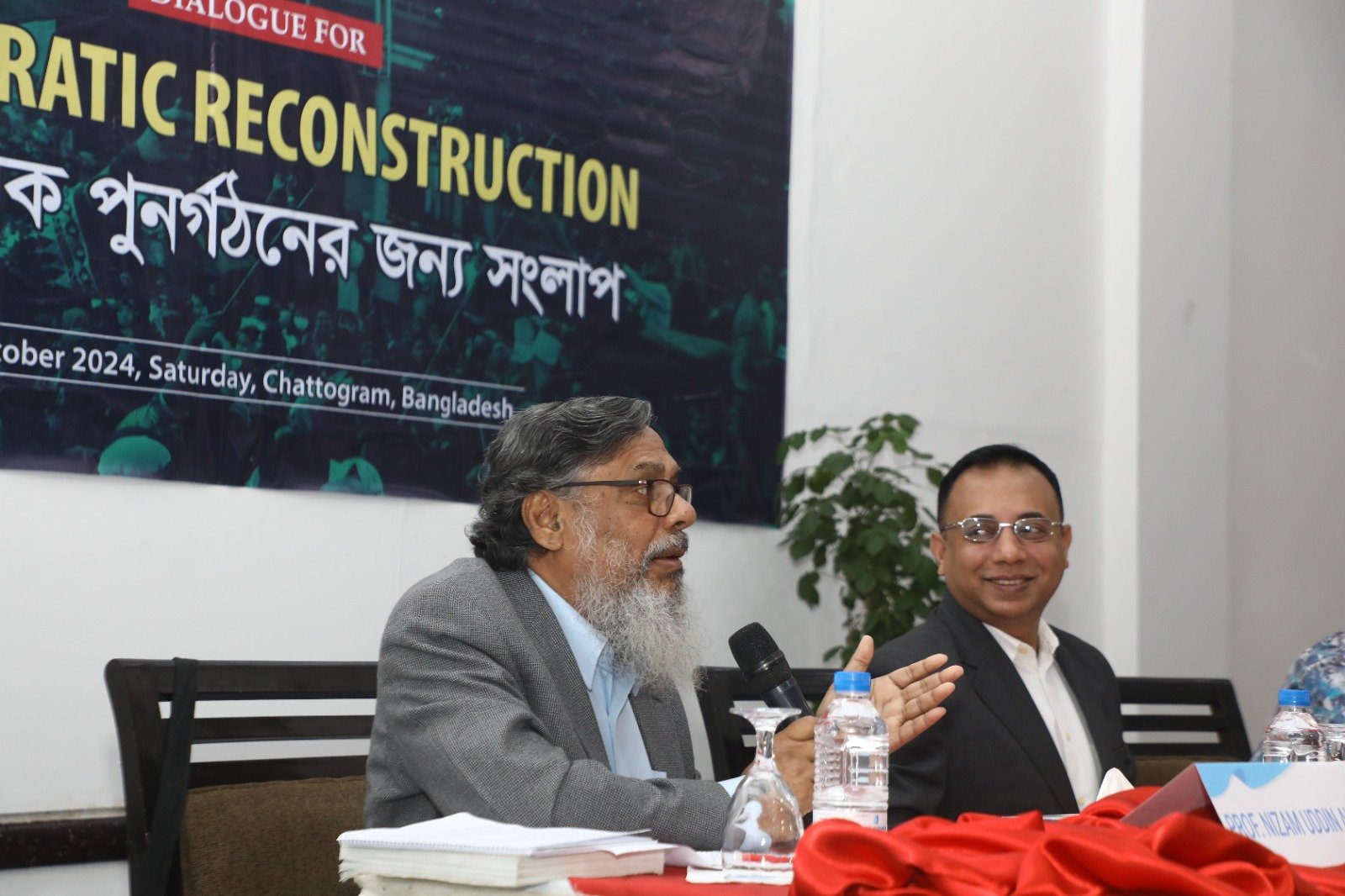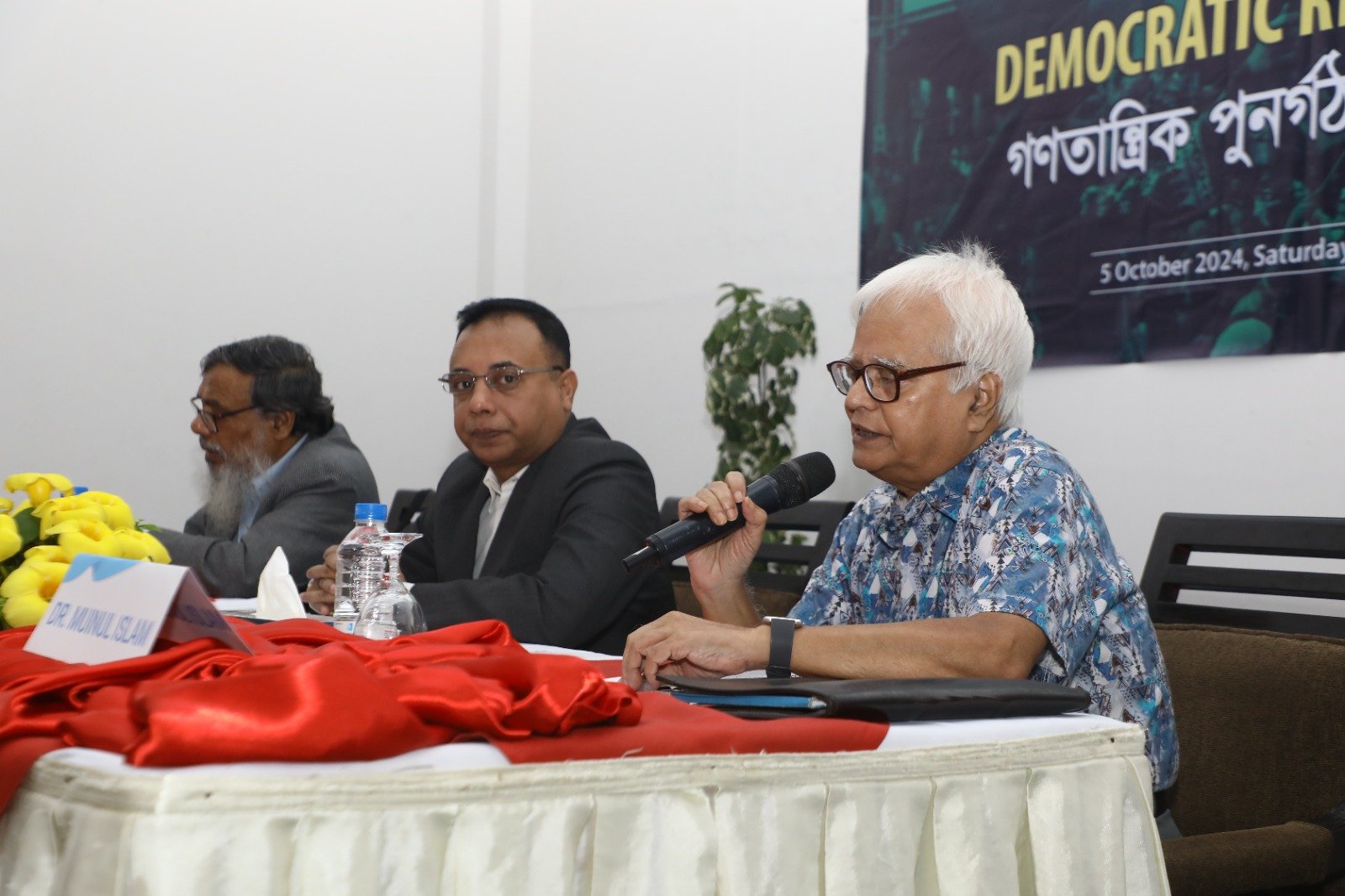Ruppur Power Plant: Awami Government’s White Elephant of the Energy Sector
Share on:

On October 5th, the Centre for Governance Studies (CGS) held the first regional dialogue of the series “Dialogue for Democratic Reconstruction” at the Hotel Agrabad, Chattogram. Economist and former Professor of Economics at Chittagong University Dr. Muinul Islam; and Researcher and Former Professor of Public Administration at Chittagong University, Professor Nizam Uddin Ahmed were present as the guest speaker in the dialogue. Zillur Rahman, Executive Director of CGS moderated the event. Additionally, teachers, students, lawyers, politicians, industrial entrepreneurs, civil society members, media professionals, activists, small business owners, women entrepreneurs, volunteers, and professionals from various sectors provided valuable insights on reform during the event.
Dr. Muinul Islam has called for a constitutional balance of power between the Prime Minister and the President, advocating for the President to be elected by the people. He proposed a bicameral parliament to replace the current unicameral system, ensuring minority representation in the upper house. Dr. Islam criticized the current allocation of 50 parliamentary seats for women as symbolic and ineffective, suggesting instead that one-third of all seats be reserved for women, with rotation every election cycle. He expressed strong opposition to rewriting the constitution, favoring amendments instead. Dr. Islam also highlighted significant corruption in the energy sector under the Awami-led government, citing the Ruppur Power Plant and the Adani Group deal as major examples of mismanagement and loss.

Professor Nizam Uddin Ahmed emphasized the importance of safeguarding fundamental rights in any constitutional changes. He believes that constitutional reform can be achieved by balancing the executive branch, noting that the ruling party often tends to alter the constitution post-election. To address this, he advocates for reforms in the electoral system, which he argues will naturally lead to broader reforms in other areas. Professor Ahmed underscores that protecting fundamental rights and ensuring a balanced executive are crucial steps towards a more stable and fair governance structure. He also highlights the need for a transparent and accountable electoral process to prevent arbitrary changes to the constitution by any ruling party.

Zillur Rahman emphasized the importance of perseverance in building a democratic state, even if immediate results are not visible. He expressed optimism, stating that while the last government may have failed, it does not signify a failure for the nation as a whole. Rahman encouraged the people to remain hopeful and committed to nation-building, ensuring that representatives from all communities are included in this collective effort.
During the open dialogue, several audience members voiced their opinions on reforming the University Grants Commission. One teacher emphasized the need to closely scrutinize the recruitment process for university faculty. Another participant highlighted that constitutional reform could help eliminate nepotism and corruption, ensuring a fair reflection of the constitution in society. A student from Chittagong University stressed the importance of improving the quality of education, promoting research activities among students, and expanding technical education. Additionally, a representative of the indigenous groups from the hill district criticized the National Human Rights Commission for failing to investigate human rights abuses in the region. He pointed out that, despite the peace agreement signed twenty-five years ago, its implementation remains incomplete.

